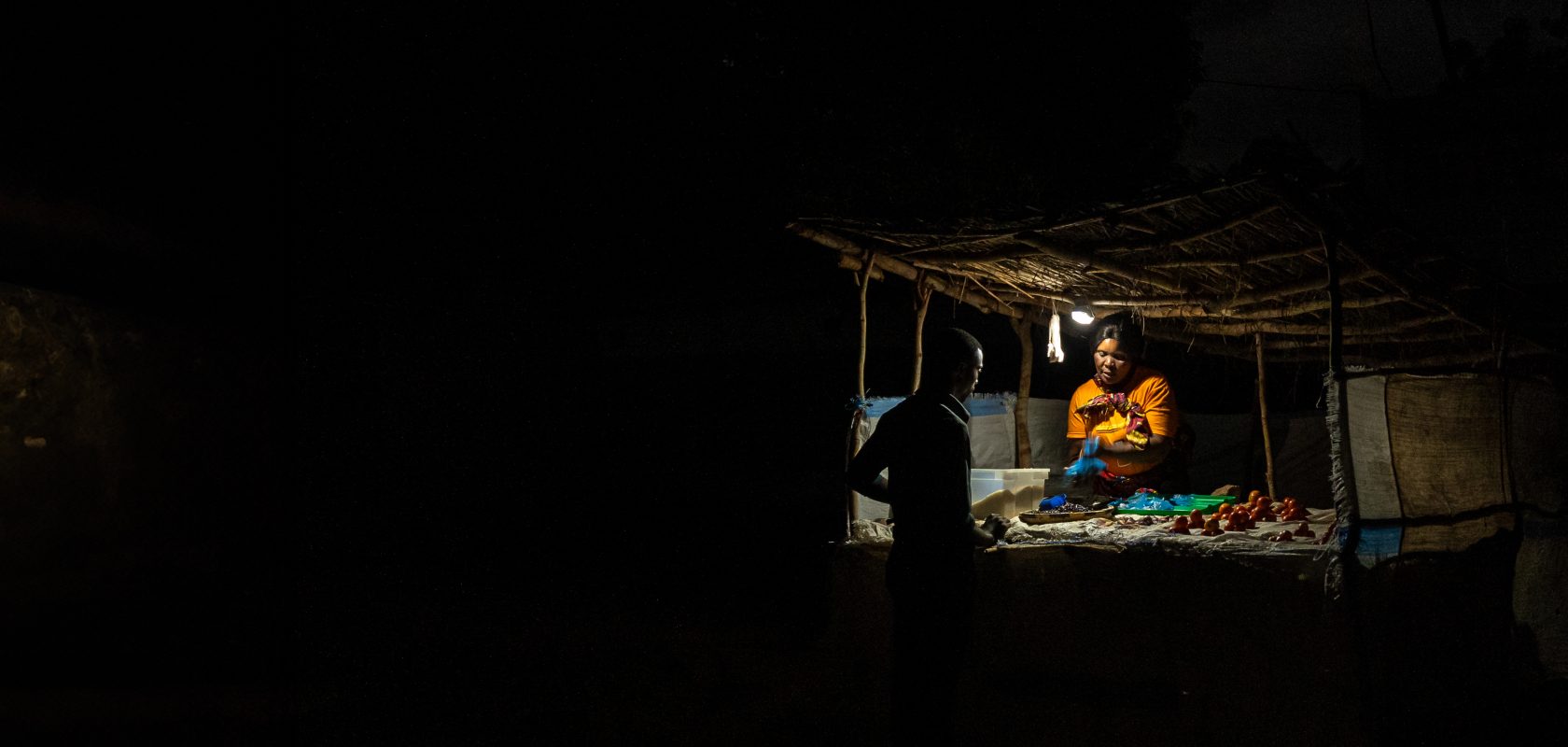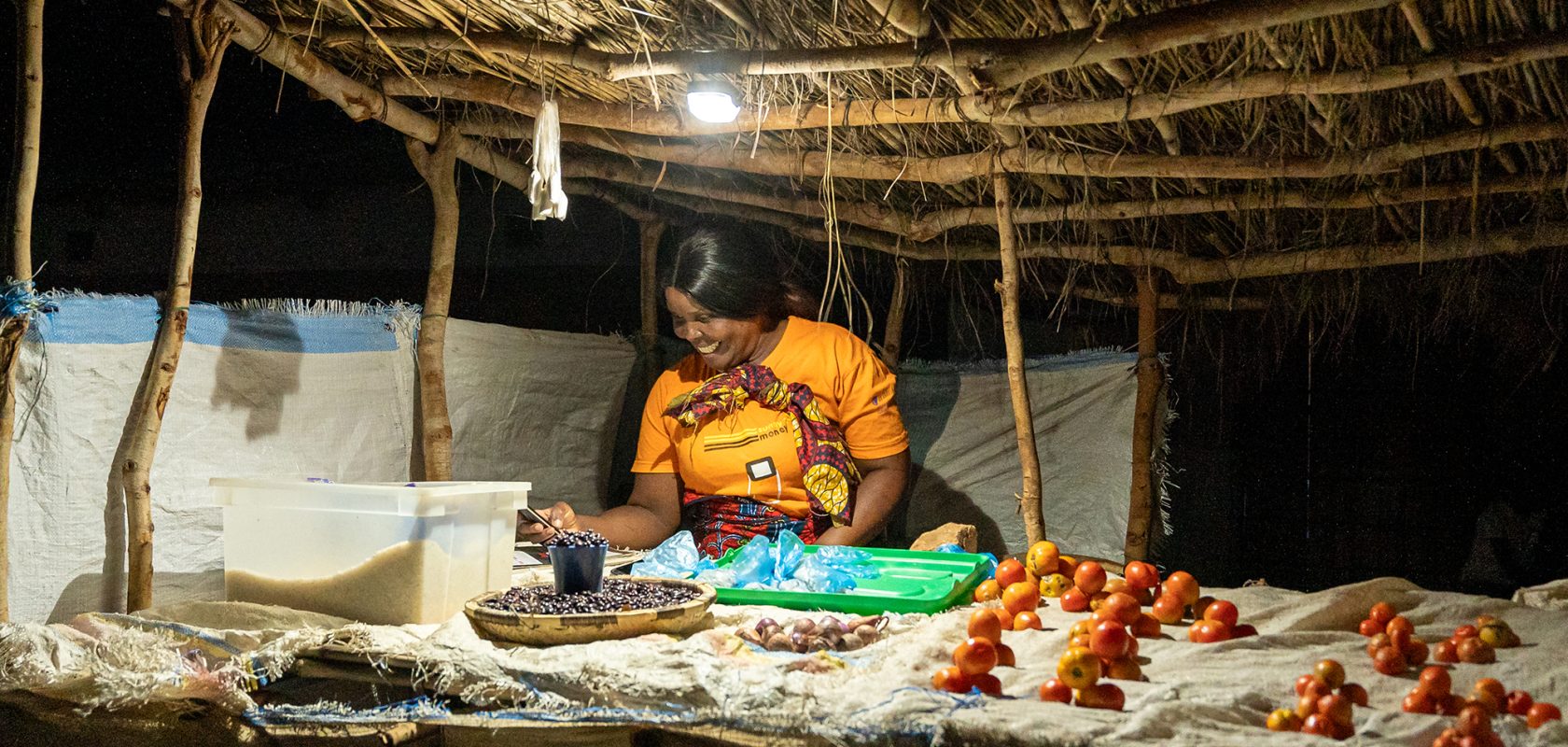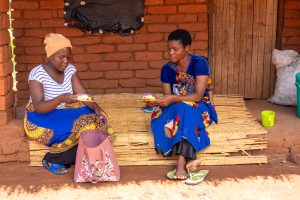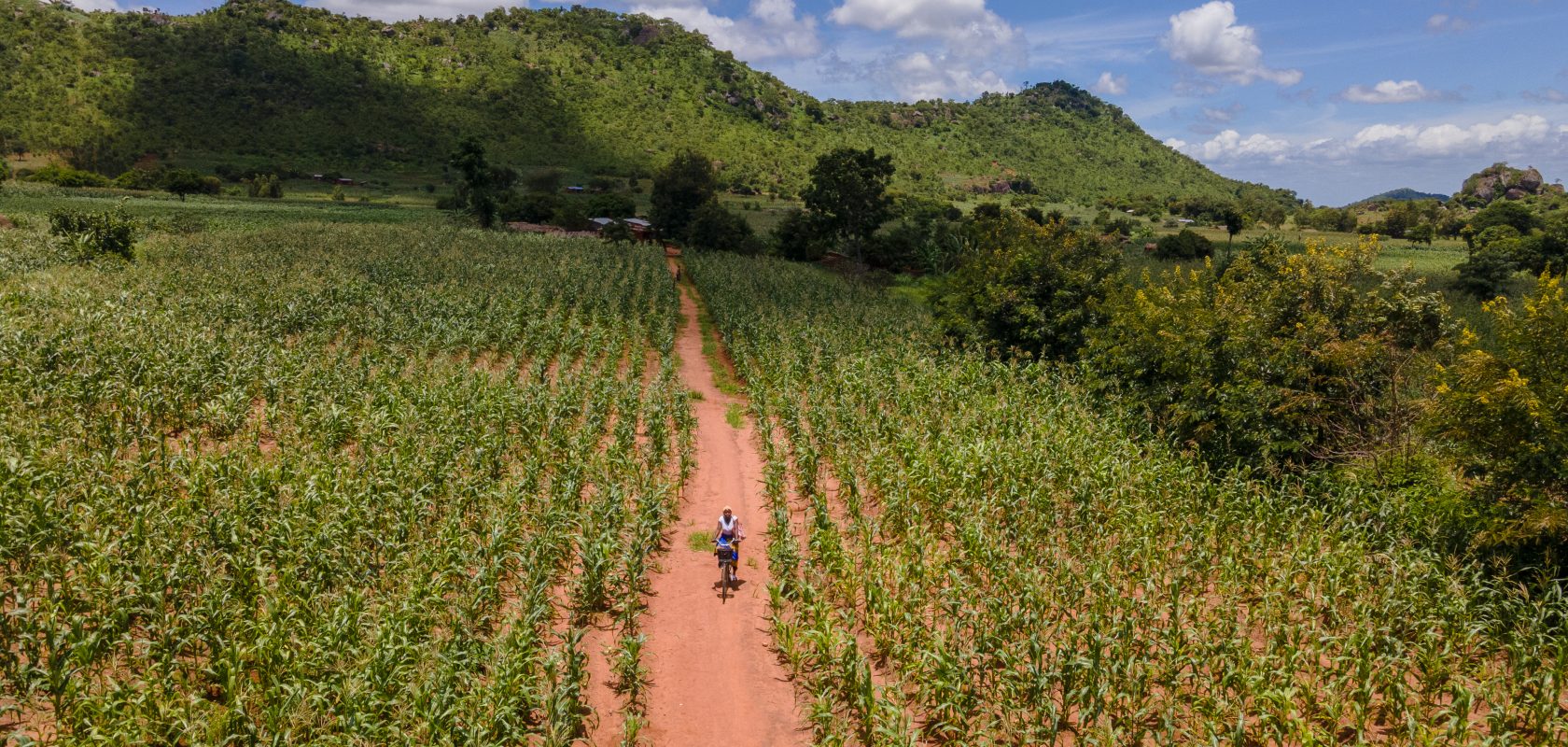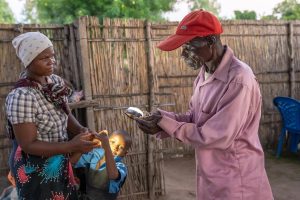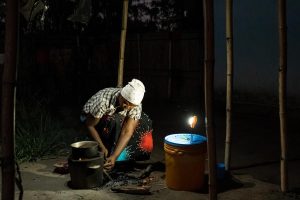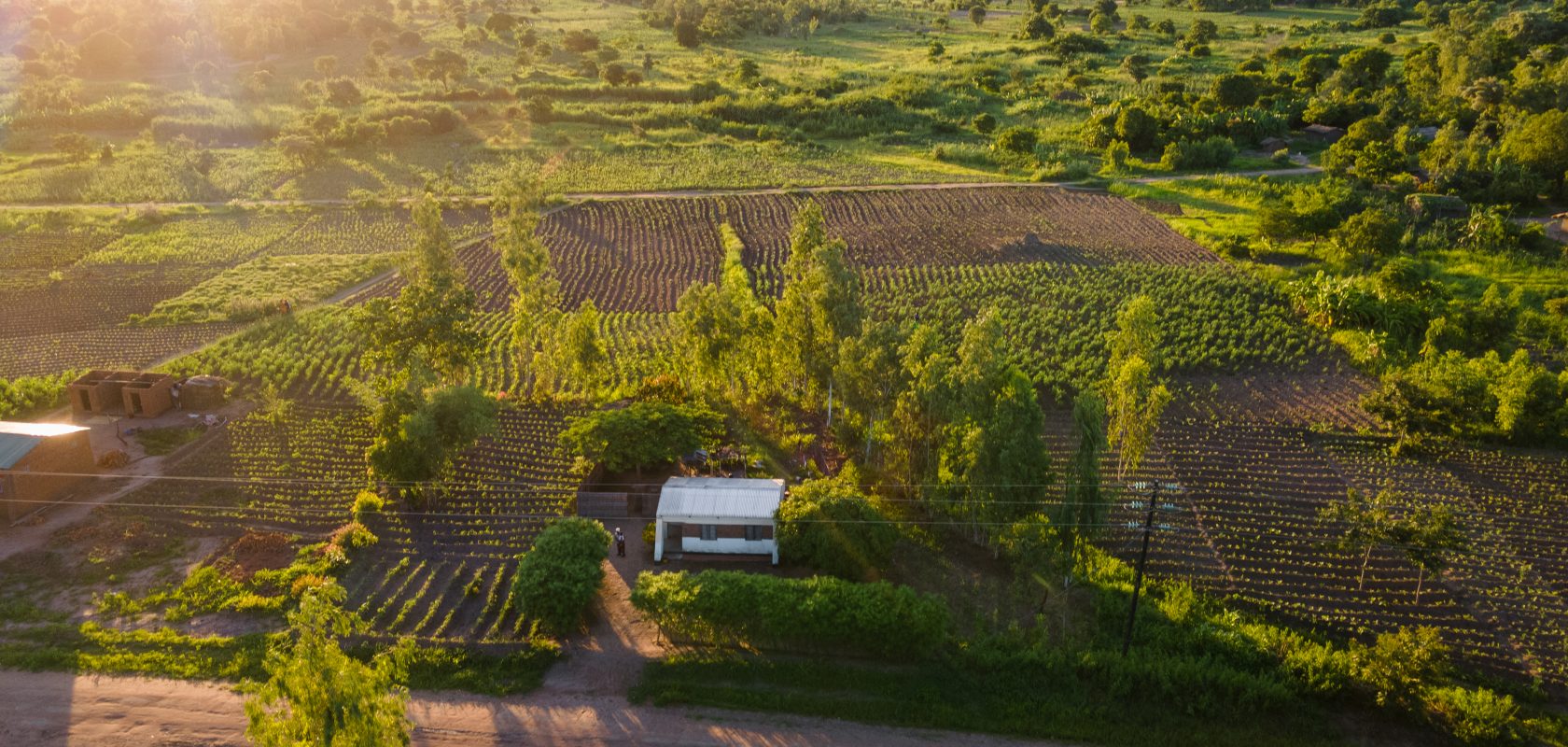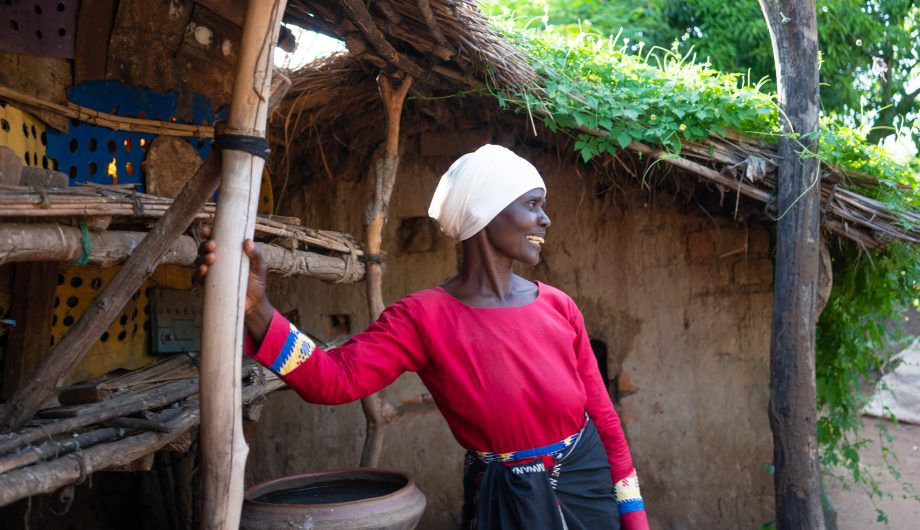Resilient. Entrepreneurial. Creative.
These are the words used to describe the women in Malawi who stand at the forefront of the movement to bring clean, safe energy to their communities brightening lives and the planet.
Across sub-Saharan Africa, women and girls are disproportionately affected by energy poverty. But as the primary users of household energy and trusted members of vast social networks, there is growing evidence that women are best placed to bring renewable energy to the most remote areas.
The women of the Tikondane Mayi Wala group are proving this to be true. From creating sustainable income to lighting up their communities and inspiring other women to do the same, women are paving the way for a more sustainable future where everyone, everywhere has access to clean, safe solar power.
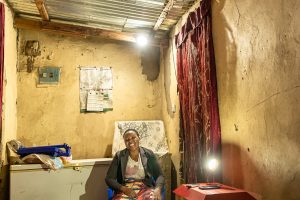
Violet Matemba, Mayi Wala and serial entreprener, in her home under a solar light (SolarAid/Kondwani Jere).
In TA Chikowe, Malawi, Violet Matemba, a 38 year old mother of three and serial entrepreneur, is creating a ripple effect of transformation across her community with her businesses. At the core of her entrepreneurial endeavours lies her solar business. She saw firsthand the impact a solar light could have and wanted to share them with her friends. “Since I’ve been using the solar lights, I’ve never had to pay for batteries, so they also help me save money. I started selling these lights to my friends because I can attest to the benefits they bring. On top of that, the earnings I had from selling solar lights helped me provide food for my children.” Selling solar lights has given Violet the opportunity to expand her other businesses while providing her financial stability and the ability to explore new opportunities.
Violet’s entrepreneurial journey began with a small restaurant in her village, but she always had her sights set on more. So, when the opportunity to join the Mayi Walas, a group of women working together to sell solar lights, presented itself, Violet couldn’t refuse. Joining the Mayi Walas became a catalyst for expanding her income streams to include four rental properties and a thriving solar products business. “I only had a restaurant when I first started my business, and I had MWK50,000 (about £24) to start with. For the benefit of my children’s future, I built houses for business purposes as well because the capital kept growing. The solar lighting business has made all of this possible. As I previously stated, I didn’t own a house when I first started this business, but as the revenues increased, I began building houses, which has allowed me to support my children.”
